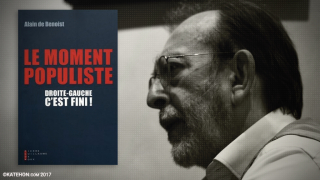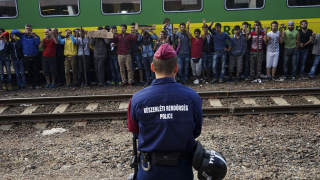25.06.2022
This interview by Pavel Kiselev with history and geopolitics expert Alexander Bovdunov addresses the current reality of Eastern Europe. The book that...
10.04.2018
The recent Western plunge into narratives of malicious poisonings, be it in Salisbury or in Syria, reflect political infantilism and a fundamental...
03.09.2019
Many people think that “populism” is just a pejorative designation of spontaneous anti-elite performances in Europe and other countries that affect...
05.12.2018
The official reason for the protests in France is the price hike on gasoline and diesel fuel. Over the past year, prices have already increased by 15...
10.02.2017
Exclusive interview for Infowars:
Alexander Dugin reveals the truth about his relations with President Putin, his attitude towards President Trump...
07.05.2017
Populism is a political orientation or viewpoint which refers to the interests and understanding of the entire population ( like hopes and fears ),...
02.03.2017
February 20th, 2017 – We awaited Alain de Benoist's analysis on the populist wave. Here it is with this veritable guidebook entitled Le Moment...
24.02.2017
Populism is gradually becoming the main political trend of this year. According to opinion polls in France, Marine Le Pen is consistently leading....
16.12.2020
For much of academic and liberal opinion, populism is a term as vague as derogatory. Populism is gregarious, moralistic, clientelistic, charismatic,...
26.06.2017
After several losses of populist movements across Europe leftist and neoliberal lobbies breathed out. For a short moment it seemed that Trump’s...












